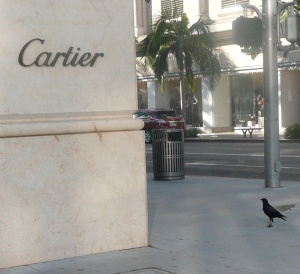 An article in the most recent Atlantic by John Donovan and Caren Zucker, “Autism’s First Child” is well worth reading.
An article in the most recent Atlantic by John Donovan and Caren Zucker, “Autism’s First Child” is well worth reading.
Using the first identified case of autism in the medical texts, and exploring the human story of this now seventy-seven-year-old, Donald Gray Triplett, the authors invite us to think about how the oncoming epidemic of autistic adults might offer new ways to think about differences in the context of the group.
Having worked with autistic and Aspergers children, I was thrilled to come across the following sentiment in Donovan and Zucker’s article: “…we can dispense with the layers of sorrow, and interpret autism as but one more wrinkle in the fabric of humanity. Practically speaking, this does not mean pretending that adults with autism do not need help. But it does mean replacing pity toward them with ambition for them. The key to this view is a recognition that “they” are part of “us,” so that those who don’t have autism are actively rooting for those who do.”
While the italics are mine, this attitude of recognition of the Self in the “other” is central not just to autism, but also to every sort of “difference” (be it smart, limited, anxious, depressed, good, bad, greedy, generous, famous, obscure, etc.): the true Self is the totality of all the “others” along with our own ego-consciousness.
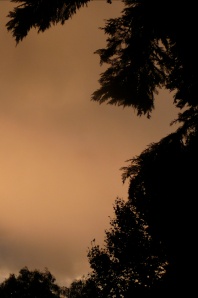 How perfect that autistics are often interested in what most of us are typically not interested in. Donald was interested in things that spun, in math (that he could do amazingly well and quickly in his head) and in golf (a great autistic game, and also a great obsessive game, and also a great teacher of many things including presence to the moment); in this way the group takes interest in everything—and why shouldn’t it? The true group is everything.
How perfect that autistics are often interested in what most of us are typically not interested in. Donald was interested in things that spun, in math (that he could do amazingly well and quickly in his head) and in golf (a great autistic game, and also a great obsessive game, and also a great teacher of many things including presence to the moment); in this way the group takes interest in everything—and why shouldn’t it? The true group is everything.
As parents and as people we strongly benefit when we get past the idea that our child does or does not have autism (i.e. that our child is or is not brilliant, special, problematic) and leap into the wider understanding that “we” are truly parents of it all, and that “we” are also children with it all—with autism and without autism, with problems and with great gifts.
Social change is happening, and this is interesting; however, my passion is consciousness change. Thus if you, today, widen your consciousness and play with the idea that “you” are not your individual set of thoughts, feelings, sensations and imaginings, but rather your true Self contains every sort of experience, the totality of our collective experience and myriad seemingly conflicting opinions and beliefs… while this may seem, at this moment, to cause your mind to glaze over, or to make you bored, or confused, or eager for something more gratifying to your individual ego-self (“What do I need to accomplish, get, give or express?”) such confusion of the ego with the true Self is precisely what fuels our fears and desires, and thus blocks our happiness.
If you imagine for the moment, and there is nothing but this moment, that you are one with me, and with Donald the seventy-seven-year-old autistic man, and with your children long after you are dead, and with remote ancestors you have never consciously met, and you are also one and the same with movie stars and billionaires and with the sick, the dying and the dead, with the scared and the lonely, but also the loved and the happy… well, the mind starts to reach its maximum individual capacity. But if you quiet the mind, release your fears and desires, intuit that you are already one with your kids and with everything else as well… you might just breathe, look at the pictures near the words, look around you right now at your “real” world, your truly precious and wondrous life, and imagine that I was imagining you doing this when I wrote these words…
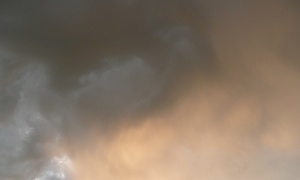 Consider that with these words I am not trying to entertain you, nor teach you, but that I am consciously trying to connect with you; and that we are co-constructing an eternal moment that links the moment of my writing and the moment of your reading into one unified moment—like a note held, vibrating across time but also encompassing the passage of time within it.
Consider that with these words I am not trying to entertain you, nor teach you, but that I am consciously trying to connect with you; and that we are co-constructing an eternal moment that links the moment of my writing and the moment of your reading into one unified moment—like a note held, vibrating across time but also encompassing the passage of time within it.
We may not understand the mystery of autism, but as a child Donald Triplett would seem to randomly hum three notes over and over as he played with his blocks; played together on a keyboard those three notes blend into a perfect chord.
Today I am not terribly interested in making sense, but in inviting you, however irrationally, into an imaginally shared moment in which we might realize together that, despite all our apparent worries and struggles, we are more than “okay”—that taken in aggregate, you and me, along with the entire sweep of the wide and varied world, hum some sort of music of the spheres, some resonant harmony that we may still be learning to appreciate (like the first time one listens to Thelonius Monk).
In this way we share in the misfortune of the other, we root for whoever struggles, we see pain in the center of all cruelty and we see the sacred in the center of all being, the wounded and the compassionate, the socially connected and the autistically oriented. This sort of attitude can make us better parents, I suppose, but it also frees us to truly live, to evolve our consciousness and bring more life into our lives.
When, via soft enough seeing (whether thanks to having the eyes of a child, or thanks to being bashed and battered into soft and loving surrender, or having made it through back to child-mind) we manage to see the sacred in things, in all people, we love—love the way the flower blooms or the cricket chirps, utterly unselfconsciously. As humans we often need to go on quite a journey to arrive at seeing the sacred (and not having to judge, instruct, change, manipulate, even give). For all we know the autistic is closer to the oneness than we might imagine, not so much having failed to arrive at human social relatedness, but perhaps vibing our oneness so fully that the other is not actually disregarded or unrecognized, but not made a big deal of any more than our thumb needs to recognize our forefinger—because every so-called “other” is not other but Self.
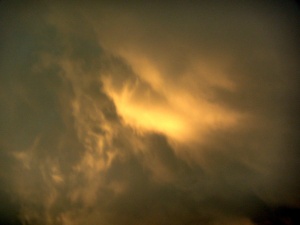 The doctor who diagnosed Donald Triplett back in the autumn of ’42 poked him with a pin and observed that although little Donald felt pain, he did not become angry or distrustful of Dr. Kanner. One gloss on this is lack of social relatedness, but another gloss is that Donald did not take it personally because at some molecular, or trans-conscious level, Don was better able to roll with a cosmos in which pain happens, without needing to project his own personal Shadow onto the doctor. Perhaps it was the doctor’s crude lack of true empathy that Donald intuited and chose not to shame.
The doctor who diagnosed Donald Triplett back in the autumn of ’42 poked him with a pin and observed that although little Donald felt pain, he did not become angry or distrustful of Dr. Kanner. One gloss on this is lack of social relatedness, but another gloss is that Donald did not take it personally because at some molecular, or trans-conscious level, Don was better able to roll with a cosmos in which pain happens, without needing to project his own personal Shadow onto the doctor. Perhaps it was the doctor’s crude lack of true empathy that Donald intuited and chose not to shame.
If one were the Buddha, would it not make sense to keep one’s mouth shut and simply be? Good ideas about compassion have been lying around for millennia; the autistic may be past spelling it out for us muggles, but if we adjust our thinking we might find magic where we had previously seen only misfortune.
If the autistic is enlightened at a level beyond our grasp, how could they explain it to us? If we’re all here to learn and grow, to connect with our higher Selves and better orchestrate our bodies, minds and spirits not just within but with each other, isn’t it possible that people with “differences” offer us opportunity to integrate our unknown aspects and to, through compassion, evolve toward our best Selves—inviting us to go beyond the golden rule and treat our neighbor as if she is (at least a part of) our Self.
Words are metaphors; diagnoses, problems, solutions, these too are all metaphors. Instead we turn, again and again, to what is convincing: light though clouds, crows, moon filling its chalice and emptying again, wisdom of skin, grounding miracle of our child’s hand in our own, taste of love and smell of garden.
If we are all indeed part of some fairly unfathomable oneness, perhaps we can take comfort in transcending our personal insecurities and angst and imagining that our fuller Selves are spread out across all spectrums, from light to autism. If we are looking for the sacred in the everything we must make time to stop and smell the roses, to sit quietly under the cork tree like Ferdinand, or just be ourselves—breathing as much life as we can into our singular existence—expanding to recognize the Self in the vast mirror of the world.
And if the world is a mirror for the Self, it is by the glimmer of its collective children that we are cast in its most flattering light—our love for every other filling us with vibrant well-being and radiantly reflecting back to us our pulsing mysterious light and eternal spirit. As Oscar Wilde suggested, if we haven’t seen the beauty in something we have not seen that thing (or soul, or moment).
Can we see to the heart of this mystery in which we exist? Can we love wild and unwieldy “us”? Are we personally ready to love softly and bravely and 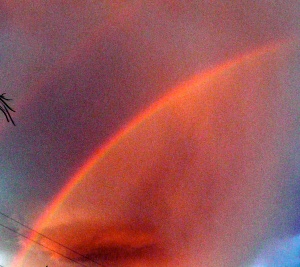 wisely in this way in the service of the group and as an act of love for all our collective children?
wisely in this way in the service of the group and as an act of love for all our collective children?
We try and we fall short, but if we support each other, if we see each other in this way, we can bloom however lately just as Donald Triplett has in his unique way (traveling the world through 36 countries and 28 states so far, and interested in it all—interested in our world and thus, in his way, in all of us). Can we do as well with what we’ve got?
Namaste, Bruce



{ 12 comments… read them below or add one }
I love your assumption that perhaps autism is a form of enlightenment. Not in that rosy, quaint way of yesteryear, but you are asking US to embrace THEM as part of US. And all this inclusion makes me turn into goo.
When a caterpillar has a metamorphosis, it literally turns into a gooey substance. It’s just liquid. Then it reemerges as the butterfly.
As I contemplate what you’re asking here, I can feel that transformation, where I have to literally let go of my old form and the boundaries that held people, rules and institutions at bay, and welcome in the new form.
Does that make any sense to you?
The Greek word for soul (psyche) is also the word for butterfly. Perhaps we are together in the liquid stage of the collective psyche? The way you put this makes great soupy sense to me, great heart-mind sense. But the compassion I wish to express must be in the love we put in the soup. Namaste
I look into my child’s eyes (with downs syndrome) and feel all that you are talking about. She is my teacher, and I gently guide her to show me how to remember, relate and not judge when the passing comments of ignorance come our way. When you see or understand, there is no need to control or poses or fear somebody once said.
To leave what doesn’t serve us to serve others behind, to leave the conditioning of times behind, takes the most courage. It takes believing that the next step always comes. And if it doesn’t, where is it we are going anyway? ( As you said, it seems silly to point out the differences and be scared of them when we know we are all a part of Us, yet we still do and will continue to fear.)
Smelling the roses makes a lot of sense to me, and you do too Bruce, since the only rhythm of the stars and spheres is already here for us, resonating within us, we just need to still. And be…present to it’s tune.
I will shut up now and smell the roses too. I have a garden full of them!
Thank you Bruce!!
Hi Saska,
Thank you for sharing these words with us—you speak with the authority of a mother who knows, and we can all learn from your example and spirit just as you do from your child. Namaste
I find this fascinating, Bruce, especially this line: “For all we know the autistic is closer to the oneness than we might imagine, not so much having failed to arrive at human social relatedness, but perhaps vibing our oneness so fully that the other is not actually disregarded or unrecognized, but not made a big deal of any more than our thumb needs to recognize our forefinger—because every so-called ‘other’ is not other but Self.”
I have long struggled with understanding and feeling the idea of oneness and the Atman, at least as the yogis have taught it to me. I’m not proud to admit that it seems that I have an easier time imagine myself as part of the oneness when I am having a hard time. (Just as it is at those times that I find myself occasionally turning to prayer.) When all is well and I’m cruising along healthy and happy, I think less about the oneness and maybe therefore about the others in there with me. (Man, I sound like a bad socialist.) Maybe I can comfort myself in thinking that my own well-being is contributing somehow to the well-being of the group? But I’d like to get to a more outward looking place one of these days.
Hi Kristen, I like what you suggest here—that your well-being is part of the well-being of the group; also, as you recognize, it is our pain that brings us to the group and connects us out of need (perhaps a potential meaning of pain?).
The great paradox is that we may be together at the higher levels of oneness, but in the ego levels, happy or not, we are all, ultimately and existentially, alone. Perhaps we can be together in compassion for our aloneness in the face of our pain of differences, fear, human loss, and together in our joys for each other wherever compassion, love, laughter and fun show up. And Namaste
I loved this blog. Autism has been a fascination of mine for sometime. I have
felt that there was something spiritual in the presence of autistics. I have not been able to explain it. I just feel it. Your blog helps me, as always, to go deeper.
Thank you
krk
And thanks for all you have given to so many different children.
You may be aware of this but this idea that the autistic are enlightened is one that has a foundation in Judaism. There is a whole dialogue that takes place about whether people the public considers “mentally challenged” are on a “higher plane’ than we are.
I have thought about it quite a bit and I sometimes wonder if there isn’t something to it. Maybe we aren’t the ones who have trouble connecting. It is certainly worth thinking about.
While I was not aware of this, I appreciate your sharing it and think it is consistent with certain Native American perspectives (and I would not be surprised to learn similar ideas in varied faiths and cultures). No matter what, seeing the value to the group in all others serves something larger than ourselves. Namaste Shalom
You have a true gift with words. This post has given me something to share with friends and family because I have no sorrow in having an autistic child, and I often wish others would meet the news with something other than, “I’m sorry”.
Hi Paige, I feel moved by these words, the experience of a mother so frequently misunderstood in her own actual feelings, the knee-jerk assumptions that miss their mark entirely.
Here’s to hoping for more authentic empathy in our world rather than judgment, ignorance, projection, fear and even well-meaning but misguided sympathy.
Namaste, Bruce